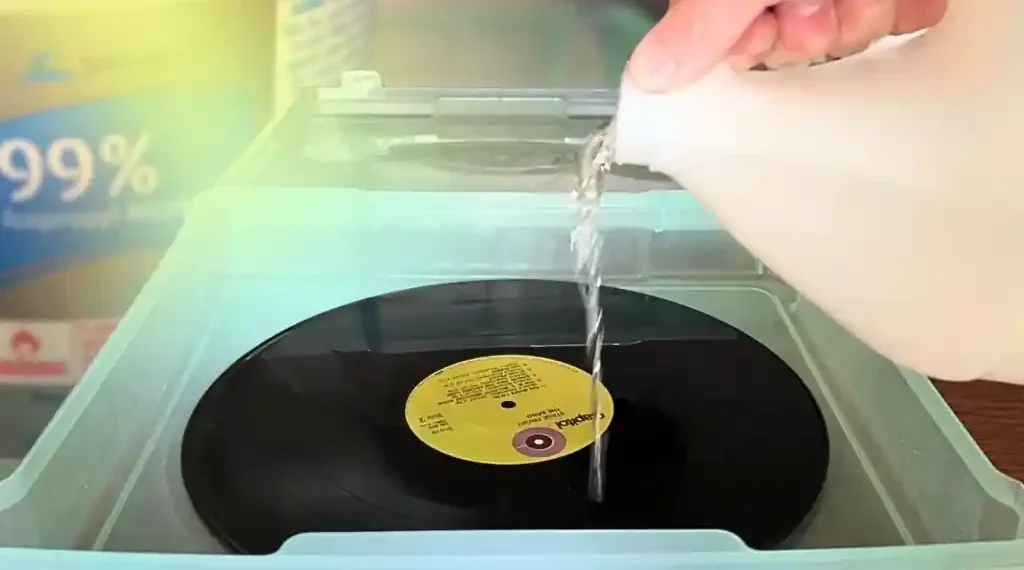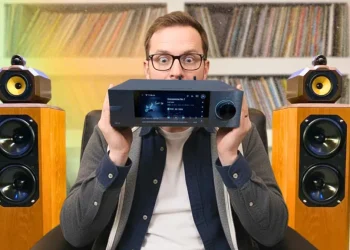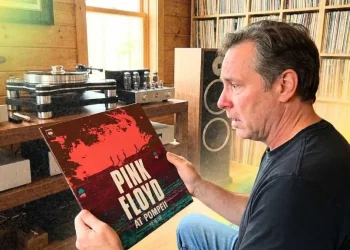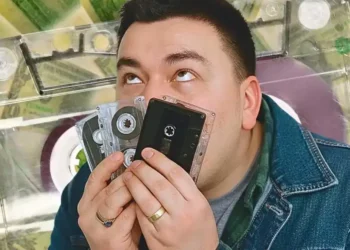Vinyl Record Soaked in 99% Alcohol for 30 Days: Does It Really Sound Better?
Published Time: 08-11-2025, 16:15
Vinyl enthusiasts often go to great lengths to preserve their records, protecting them from dust, scratches, and damage. But Rick Coste, a veteran collector with over 40 years of experience, took a different approach—soaking an old vinyl record in nearly pure isopropyl alcohol for an entire month to see what would happen. Contrary to common expectations, the record emerged sounding cleaner and clearer, sparking interest and debate among audiophiles and collectors.
The Experiment: Soaking a Vinyl Record in Pure Alcohol
There’s a widespread concern in the vinyl community that alcohol, especially at high concentrations, could damage records by stripping away plasticizers—chemical compounds that keep vinyl flexible and resistant to cracking. Without these plasticizers, some fear that records might become brittle and prone to quicker wear.
To test this theory, Rick Coste selected a worn copy of Stage Fright by The Band, a 1970 pressing he regarded as one of his worst-condition records. He submerged it fully in a container filled with 99% isopropyl alcohol and left it there for 30 days.
“I wanted to prove a point,” Coste explained. “That isopropyl alcohol won’t necessarily harm your records.”
Maintaining the experiment wasn’t without challenges. Because isopropyl alcohol evaporates quickly, Coste regularly refilled the container to keep the record completely submerged. He also recorded audio samples before submerging the vinyl and after drying it off, allowing listeners to compare and judge the results themselves.
Visual and Audio Results: Cleaner Grooves and Improved Sound?
After a month in the alcohol bath, Coste examined the record under a USB microscope. The grooves showed no visible signs of cracking, warping, or surface damage. This finding alone surprised many collectors accustomed to the cautionary advice against alcohol exposure.
The audio samples sparked lively discussion. Listeners who compared the before-and-after clips noted a distinct difference. Many described the “after” version as having less crackle and surface noise, resulting in a cleaner listening experience.
Some listeners reported subtler changes beyond noise reduction:
- A lighter low end
- Less sharp or less aggressive high frequencies
- A more balanced and focused overall sound
One listener even used audio software to analyze both tracks and found that the post-soak recording had a slightly lower noise floor, although it sounded a bit less dynamic.
Is Soaking Vinyl in 99% Alcohol Safe for Your Collection?
Despite the encouraging initial results, the long-term effects remain uncertain. Rick Coste himself cautions that the experiment does not guarantee safety for all records.
“Plasticizers can leach out over time,” Coste warned in his video, “which might make a record brittle and prone to damage after repeated plays.”
He plans to monitor the record’s condition over the next several months, promising updates every six months to document any changes.
Some viewers expressed concerns about possible subtle damage that might only become evident after extended use. Others pointed out that leftover alcohol, if not fully evaporated, could potentially weaken the glue that holds a stylus tip, though this risk is minimal if the record is thoroughly dried.
Expert Advice on Vinyl Cleaning and Preservation
Outside of the experimental community, archivists and preservation experts generally recommend against using pure isopropyl alcohol on vinyl records. Instead, they advocate for gentler cleaning solutions, such as diluted isopropyl alcohol mixed with distilled water and a small amount of surfactant, which helps break down dirt without risking damage.
Professional guidance emphasizes regular, gentle maintenance rather than extreme cleaning methods, especially for valuable or fragile records.
What This Experiment Means for Vinyl Collectors
Rick Coste’s extreme test was never intended as a cleaning recommendation. Instead, it was a bold exploration to challenge assumptions about vinyl care. His findings suggest that, under certain conditions, vinyl can withstand exposure to high-concentration alcohol without immediate damage—and may even benefit from a reduction in surface noise.
For vinyl collectors and audiophiles, this experiment opens a door to further investigation about cleaning methods, while underscoring the importance of caution and long-term observation.
This article was rewritten by JournosNews.com based on verified reporting from trusted sources. The content has been independently reviewed, fact-checked, and edited for accuracy, neutrality, tone, and global readability in accordance with Google News and AdSense standards.
All opinions, quotes, or statements from contributors, experts, or sourced organizations do not necessarily reflect the views of JournosNews.com. JournosNews.com maintains full editorial independence from any external funders, sponsors, or organizations.
Stay informed with JournosNews.com — your trusted source for verified global reporting and in-depth analysis. Follow us on Google News, BlueSky, and X for real-time updates.














